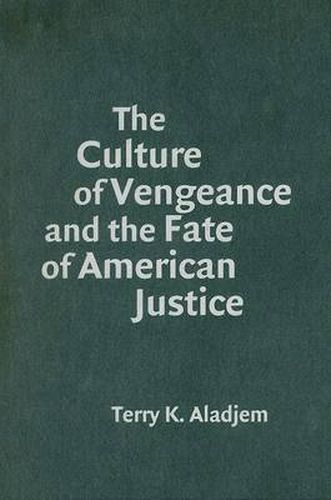Readings Newsletter
Become a Readings Member to make your shopping experience even easier.
Sign in or sign up for free!
You’re not far away from qualifying for FREE standard shipping within Australia
You’ve qualified for FREE standard shipping within Australia
The cart is loading…






America is driven by vengeance in Terry Aladjem’s provocative account - a reactive, public anger that is a threat to democratic justice itself. From the return of the death penalty to the wars on terror and in Iraq, Americans demand retribution and moral certainty; they assert the ‘rights of victims’ and make pronouncements against ‘evil’. Yet for Aladjem this dangerously authoritarian turn has its origins in the tradition of liberal justice itself - in theories of punishment that justify inflicting pain and in the punitive practices that result. Exploring vengeance as the defining problem of our time, Aladjem returns to the theories of Locke, Hegel and Mill. He engages the ancient Greeks, Nietzsche, Paine and Foucault to challenge liberal assumptions about punishment. He interrogates American law, capital punishment and images of justice in the media. He envisions a democratic justice that is better able to contain its vengeance.
$9.00 standard shipping within Australia
FREE standard shipping within Australia for orders over $100.00
Express & International shipping calculated at checkout
America is driven by vengeance in Terry Aladjem’s provocative account - a reactive, public anger that is a threat to democratic justice itself. From the return of the death penalty to the wars on terror and in Iraq, Americans demand retribution and moral certainty; they assert the ‘rights of victims’ and make pronouncements against ‘evil’. Yet for Aladjem this dangerously authoritarian turn has its origins in the tradition of liberal justice itself - in theories of punishment that justify inflicting pain and in the punitive practices that result. Exploring vengeance as the defining problem of our time, Aladjem returns to the theories of Locke, Hegel and Mill. He engages the ancient Greeks, Nietzsche, Paine and Foucault to challenge liberal assumptions about punishment. He interrogates American law, capital punishment and images of justice in the media. He envisions a democratic justice that is better able to contain its vengeance.